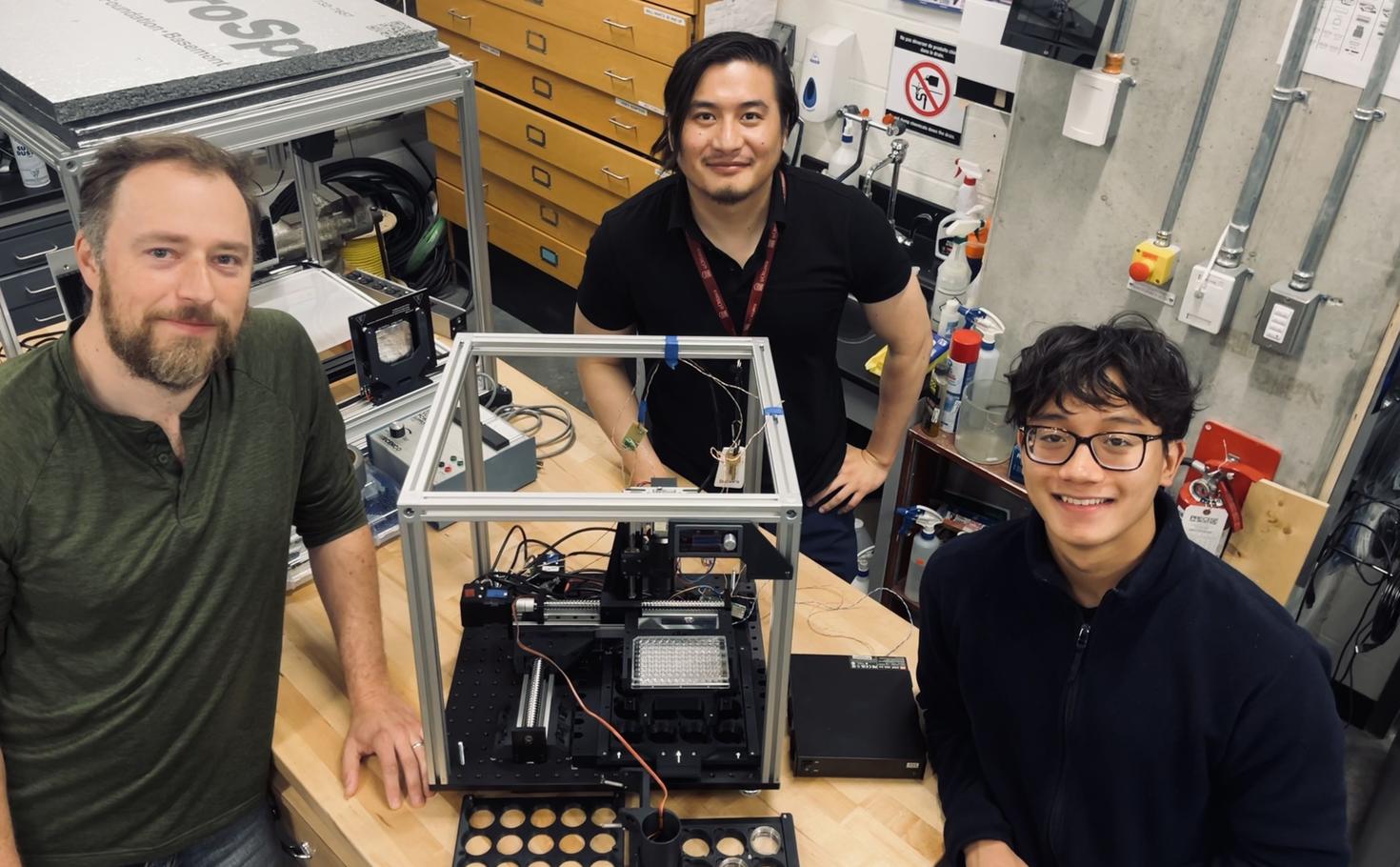Originally from India, Niepukolie moved to Canada in 2018 to pursue a master’s degree in biology at the University of Calgary. There, his fascination with how organisms respond to environmental challenges deepened. “I’m a curious person,” he says. “I get excited by new concepts and discoveries while reading, and that curiosity is what drew me into science.” This intellectual drive carried him to uOttawa for his PhD. Here, he continues to investigate the molecular stories hidden in tiny aquatic organisms, under the supervision of Professor Jan Mennigen.
His current work focuses on how environmental challenges, such as chronic stress, nutrition problems or low oxygen, can affect not just one organism but its descendants too. Using zebrafish as a model, Niepukolie studies how parental experiences alter molecular signals, particularly microRNAs, in sperm and eggs, and how these changes may influence the physiology, especially metabolism and behaviour, of the next generation. “We are essentially looking at how experiences of the parents shape the biology of their offspring, without altering DNA sequences,” he explains.
Niepukolie is also making waves in toxicology and its public policy implications. In this field, zebrafish embryos are quickly gaining traction as an ethical and economically viable alternative to traditional tests on mammalian models. A chance observation during a side project led to groundbreaking work on methylene blue, a common antifungal used in zebrafish research. Teaming up with Jith Thomas, a research scientist at Health Canada, Niepukolie discovered that methylene blue could affect mitochondrial function and behaviour by altering neurotransmitter levels — findings that had been overlooked for decades. His research has resulted in two publications and a call to the zebrafish research community: it’s time to rethink the use of methylene blue and adopt more reproducible and standardized protocols.
His research was recognized in 2024 with the Dr. Thomas Moon Scholarship, awarded to a graduate student in the Department of Biology who’s conducting research in fish physiology and toxicology.
Alongside his main research, Niepukolie has also been involved in exciting interdisciplinary work. In collaboration with Professor Eva Hemmer and her PhD student, Hana Mirmajidi, from the chemistry department, he has been testing lanthanide-based nanoparticles for potential biomedical applications. “It’s been a great experience that’s really expanded my perspective and helped me get better at working across disciplines,” he says. This collaboration also led to a co-authored publication and marked a milestone in bridging biology and chemistry through practical applications.
A particularly innovative aspect of his PhD experience has been the development of a behavioural monitoring system. The project started with Niepukolie’s own idea. “I brought up the idea, and without a second thought, Professor Mennigen trusted me to take the lead, not just on the project but also in managing the funds from his side,” he says. “He told me to use the resources however I saw fit, which gave me a lot of freedom and confidence.” With that support, Niepukolie collaborated with Lukasz Andrzejewski from the Electronics Shop to design and build the system from scratch.
“This kind of trust and freedom does a lot to build confidence and independence in mentees,” he reflects. “That’s something I want to pass on in my own teaching and mentoring.”
Despite the intensity of his work, Niepukolie finds time to share his passion through science outreach. As a volunteer with Let’s Talk Science, he introduces young students to the wonders of biology. “Children are naturally curious,” he says. “Talking to them often challenges me to think differently. It’s incredibly rewarding.” He also serves on uOttawa’s Animal Care Committee, reviewing research protocols to ensure animals receive ethical treatment and don’t suffer whenever possible.
His teaching and mentoring efforts have not gone unnoticed. In 2025, Niepukolie received the Antoine Morin Memorial Scholarship for his commitment to knowledge-sharing and excellence in teaching. “It boosted my confidence,” he says. “As an international student, it’s not easy to compete for major grants, so this recognition meant a lot.” He has since mentored multiple undergraduate students, a role he finds both demanding and fulfilling.
Throughout his doctoral journey, Niepukolie has embraced collaboration across academic and government settings, particularly through his work with Health Canada. “Academia moves fast,” he notes, “but in government labs, there is a focus on reproducibility and policy impact. That level of rigour has really shaped how I approach research.”
Looking ahead, Niepukolie plans to continue his scientific path through postdoctoral research. While he isn’t focused on direct biomedical applications, he hopes his work will contribute to broader societal goals by advancing fundamental science and promoting better research practices. “I want to be a strong advocate for reproducibility and standardization in science,” he says. “My motivation is driven by pure curiosity to ask basic questions and find truthful answers.”
In his free time, Niepukolie enjoys reading and loves diving into discussions about science, economics and history, especially when chatting with others who are just as curious about these topics. He likes immersing himself in small joys that reflect the same curiosity that fuels his academic journey. “I’m excited to keep asking questions, and hopefully, helping others ask theirs too,” he says.
Read more:
- THE MENNIGEN LAB— Mennigen lab research group website
- Methylene Blue Is a Widely Used Antifungal Agent That Confounds Behavioral Toxicity Assays in Larval Zebrafish | Environmental Science & Technology Letters
- Methylene blue at recommended concentrations alters metabolism in early zebrafish development | Communications Biology
- Nano-bio interactions of Gum Arabic-stabilized lanthanide-based upconverting nanoparticles: in vitro and in vivo study - Journal of Materials Chemistry B (RSC Publishing)
